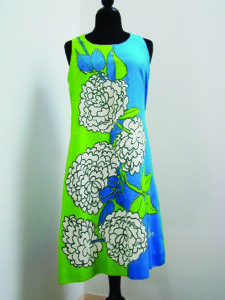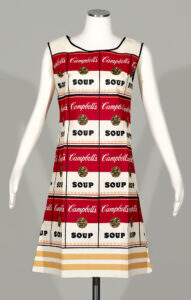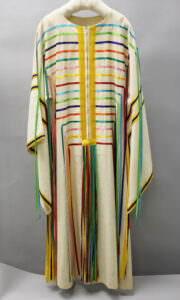May 6 through September 24, 2023
Scheller, Fowler, and Rodale Galleries
Amid the change and turmoil of the 1960s, fashion became a laboratory for defining identity. Fashion as Experiment explores how young people used clothing as a space for both play and protest during this era.
In the mid 1960s, teens and young adults used fashion to reject the values of their parents’ generation. Youth styles favored novelty over quality and elegance, emphasizing low prices, unusual materials, and wild patterns inspired by contemporary art. Young men defied masculine ideals by embracing long hair and riotous prints. For women, youthful shift dresses and revealing garments like the miniskirt suggested liberation from the strictures of respectable femininity. Although fun and irreverent, these fashions nonetheless posed serious questions about existing norms of gender, sexuality, and propriety.
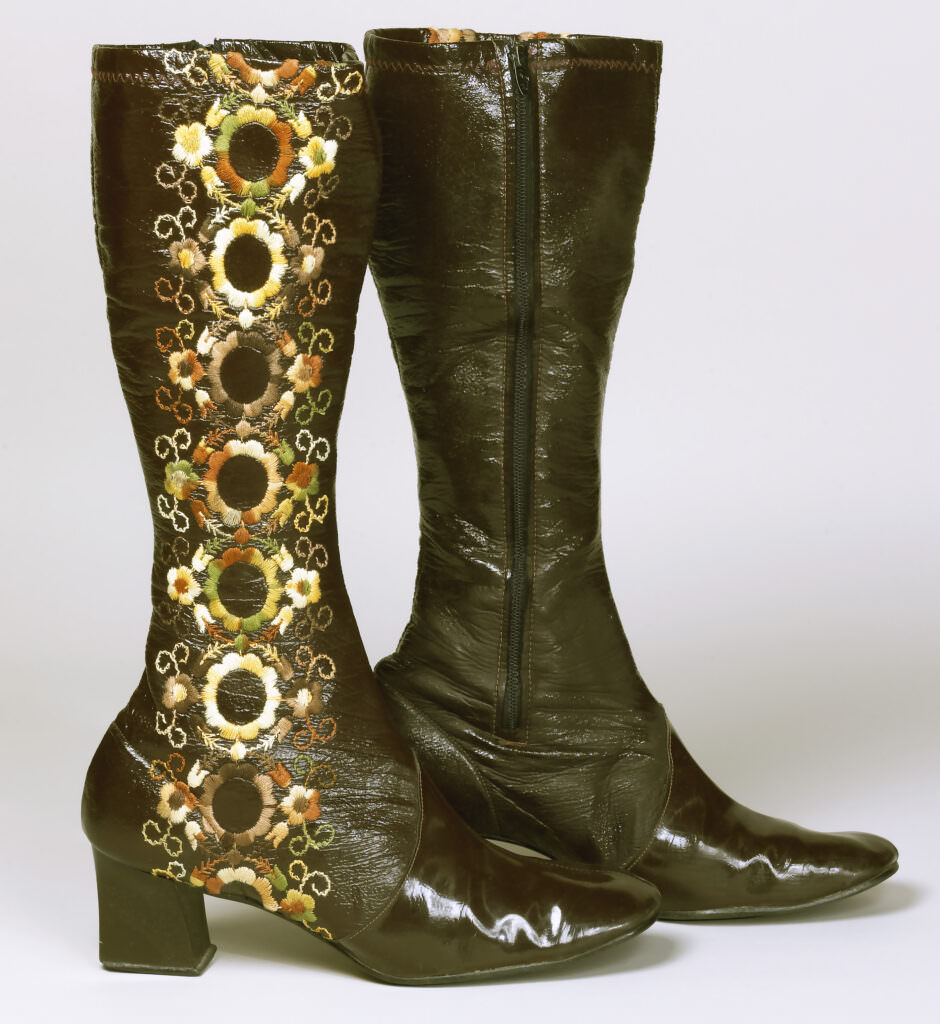
American, “Boots,” late 1960s- early 1970s, vinyl with embroidery. Collection of Ellie Laubner, 2009. (2009.12.147 a,b)
This use of fashion to question social convention laid the groundwork for clothing to take on political meaning at the end of the decade. Young people began wearing globally inspired styles as well as thrifted and handmade garments to protest the materialism, racism, and imperialism they saw in American society. For them, this attire demonstrated an attitude of awareness and support for causes like the antiwar and civil rights movements. While some countercultural youth intended such styles to subvert the fashion system, savvy designers soon offered mass-produced versions of the look that achieved mainstream popularity.
Fashion as Experiment features more than eighty garments and accessories from the Museum’s collection that illustrate the tumultuous mood of the decade, ranging from hippie looks to ready-to-wear designs by André Courrèges, Emilio Pucci, and Vera Neumann. This varied selection illustrates how 1960s youth mobilized fashion as a place for debate, activism, and imagination—and as a driver of social and political change.
Show us your grooviest looks! Learn more about our call for community photo submissions by clicking HERE.
- Vera Neumann, “Dress,” 1960s, cotton. Gift of Kirsten M. Jensen, 2021. (2021.20.10)
- Campbell’s Soup Company (American), “The Souper Dress,” 1966–67, screen print on cellulose. Purchase: General Acquisitions Fund, 2014. (2014.4)
- Josefa (Mexican), “Wedding Dress,” 1972, natural cotton, ribbons. Transferred from American Textile History Museum, Gift of Ellen Pinzur, 2017. (2017.6.93)
Fashion as Experiment: The ’60s is generously supported by
The Coby Foundation, Ltd.; Martin Guitar Charitable Foundation; and County of Lehigh.
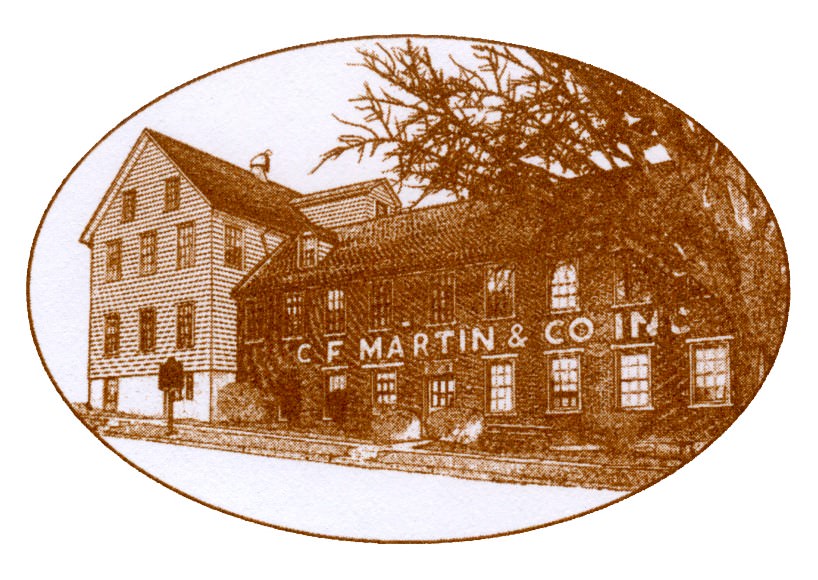
Additional support is provided by Ellie Laubner, Bernard and Audrey Berman Foundation, and Leon C. and June W. Holt Endowment.


